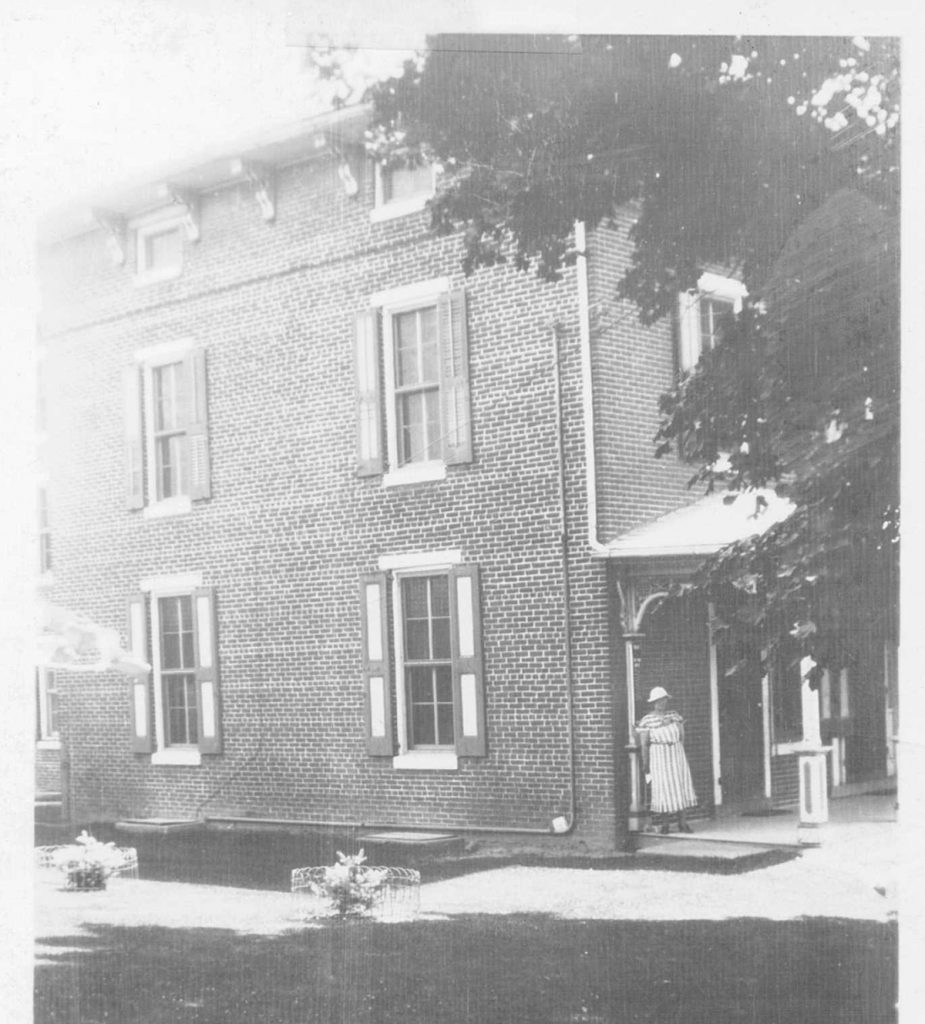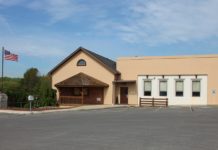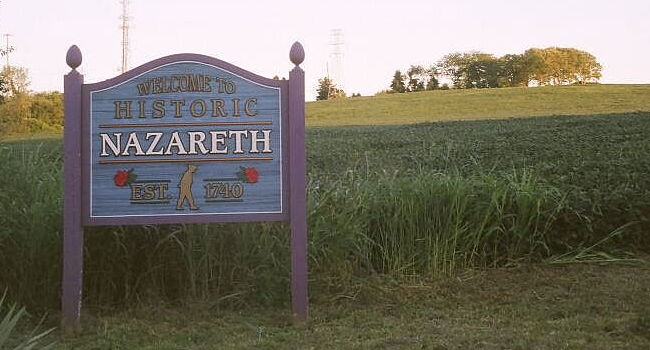
In this third column, we are visiting Weaversville in 1803 with Cornelia Anna Weaver Green.
She describes a view from the Weaver house: “The wide yard with its tall trees. The race which drove the water wheel in the tannery, the wash house, the smoke house, the spring and the spring house. The row of weeping willows on the bank of the creek that rippled and furled, making music in the night. Beyond lay the lush meadow with its sweet grass odors, its violets and buttercups, its fox grape vine completely enclosing two apple trees that ceased their own function and took to supporting ambitious vines.
“Oh ye, as yet unborn! I wonder if you will have finer pleasure than coming from school on a hot afternoon, drinking cold spring water out of a bright tin cup, rushing across the narrow board over the creek, scaling the apple tree and finding overhead a roof of fox grapes, the odor of which permeated the air long before you had reached home.”
In 1803, Michael Weaver continued to operate the tannery. His father had also built a store housed in a frame building. The Weaver family would continue to operate tanneries until 1868. Cornelia Weaver Green writes about the War of 1812.
“When grandfather (Michael Weaver) was in the Army in 1812, his wife, Magdalena, was alone with her children, the oldest of whom was not more than 17. She had to take all sorts of customers for leather down in the cellar, where it was stored, which taxed her courage for she wore linen saddlebags (still in existence) under her apron filled with gold and silver. She jingled when she walked.
“She wore a pair of scissors on a long steel chain fastened to her apron band. A very long experience with borrowing children carrying off this implement was probably the reason for securing it thus.”
Margie Jenkins, a descendant of the Weavers, relates a sad memory: “My brother John Little was a naval pilot in World War II. His air group was stationed on the aircraft carrier Yorktown. He wore his identification tag on the same silver chain that Magdalena used for her scissors. In December 1943, we received a telegram — Lt. John Little was lost in action near the Solomon Islands in the Pacific.”
Mrs. Margie Little Jenkins still has the scissors, a simple object with cherished memories never to be forgotten. At the time, Margie was 18 years of age.
Her other brother Robert, a West Point graduate, in 1939, would also serve with honor in the U.S. Army during World War II.
When the War of 1812 ended, Michael Weaver returned home. The year 1831 was a momentous year for him. He was appointed postmaster, and the town was named Weaversville, which remains as a memory of history. Weaver’s son Samuel would succeed him as postmaster, followed by Samuel’s son William in 1868.
Samuel’s family was large — 12 children — so a decision was made to construct a new home.
In two weeks: The Weavers build a home, which is the current Weaversville Hotel.








